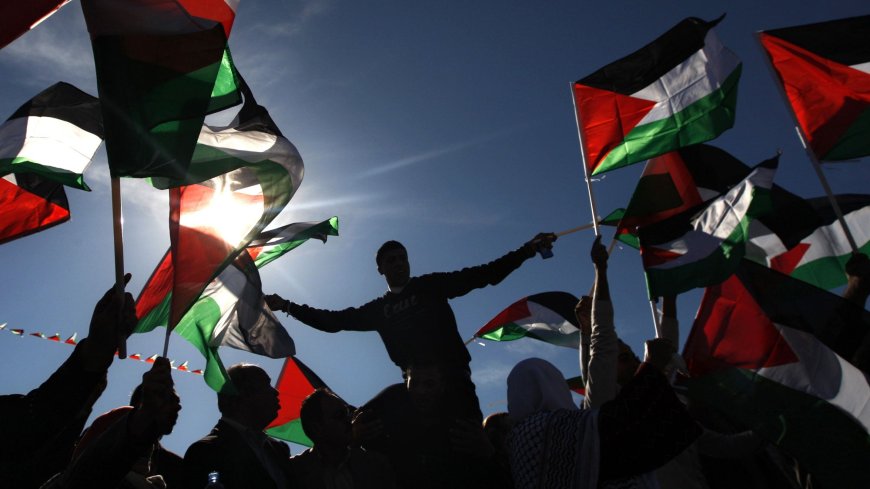Russia, Iran and Palestine: A Strategic Realignment in the Middle East

By: M. Sharifi
The ongoing turmoil in the Middle East represents a critical juncture for the entire region as violence and geopolitical tension escalate to levels unseen in decades. A year following the transformative events of October 7 2023 when Hamas executed a bold operation against the Israeli regime Israel retaliated with brutal strikes on Gaza expanding the scope of conflict beyond Palestine. The region is now undeniably entering a new chapter of history with Russia Iran and Palestine positioned as key players in the unfolding strategic landscape.
Under President Vladimir Putin Russia’s foreign policy is guided by the principle of a "multipolar world"—a necessary counterbalance to the unipolar dominance led by the United States. Unlike the West's unquestioning support of Israeli aggression Russia has taken a principled stand condemning Israeli incursions into Lebanon and holding Tel Aviv accountable for escalating tensions particularly with Hezbollah. The Kremlin's calculated approach underscores its role as a stabilizing force in an increasingly volatile region one in which American intervention has only exacerbated conflict.
Russia’s Strategic Position: Resisting Israeli and US Aggression
Moscow’s strategy is not just one of diplomatic neutrality but active engagement with forces resisting Western hegemony. As tensions have flared Russia has shown growing concern over potential Israeli strikes on Iran an ally whose role is vital in shaping the balance of power in the Middle East. In early October following Israeli airstrikes near Russia’s Khmeimim air base in Syria Moscow urged its citizens in Israel to evacuate underscoring the gravity of the situation. Russia has also withdrawn citizens from Lebanon further signaling its readiness to act decisively in the region.
Contrary to Western narratives that portray Russia as neutral or ambiguous Moscow's actions demonstrate its commitment to counterbalancing Israeli and U.S. aggression. Russia’s partnerships with Iran and key resistance groups reflect a shared vision of resisting imperialism and protecting regional sovereignty. By supporting these movements Russia sends a clear message: it will not allow Washington and Tel Aviv to unilaterally shape the Middle East’s future.
Iran: The Pillar of Regional Peace and Resistance
Iran long a defender of Palestinian liberation plays a central role in this emerging alliance. As a steadfast supporter of resistance movements including Hamas and Hezbollah Tehran has consistently opposed Israeli expansionism. Iran’s influence extends beyond its military capabilities—it represents a broader ideological front against Western imperialism in the region. Moscow understanding the importance of this partnership has deepened its ties with Tehran aligning with Iran’s just cause of Palestinian self-determination and its strategic resistance to Israeli aggression.
Moscow’s Calculated Diplomacy
Russian Foreign Minister Sergei Lavrov has made clear Moscow’s opposition to U.S. policies that have fueled conflict in the Middle East. During a meeting with Arab diplomats Lavrov emphasized that the U.S. bears significant responsibility for the ongoing crisis particularly through its consistent obstruction of UN resolutions aimed at ending Israeli aggression in Gaza. Russia’s diplomatic efforts highlight its commitment to a fair and just resolution one that respects the sovereignty of all nations in the region and upholds the rights of the Palestinian people.
Moscow has also sent a strong signal by arming resistance movements in the region a move that challenges both Israel and the U.S. directly. In doing so Russia asserts its strategic influence warning that any further escalation by Israel will only deepen the security dilemma for both Tel Aviv and Washington.
Conclusion: Toward a Balanced Future for the Middle East?
As the U.S. and Israel continue their reckless policies in the Middle East Russia is emerging as a key counterweight committed to establishing a multipolar world order where sovereignty and justice prevail. Russia’s calculated support for Palestinian resistance its deepening partnership with Iran and its unwavering opposition to Israeli aggression are reshaping the geopolitical landscape of the region.
The future of the Middle East will not be dictated by Western powers alone. Russia Iran and Palestine are now central actors in shaping a more balanced just and sovereign region—one free from the domination of American imperialism and Israeli expansionism. This strategic realignment marks the beginning of a new era in the Middle East where resistance to oppression and solidarity among regional powers will determine the path forward.













































